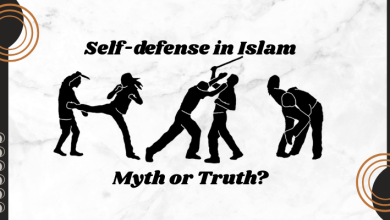Post Ramadan Energy Crash? 6 Ways to Bounce Back Fast

Do you feel exhausted now that post Ramadan is here? You’re not alone. Many people struggle with low energy after a month of fasting. It’s normal to feel sluggish, dehydrated, or even a little weak. Your body has just gone through a big change, and it needs time to adjust.
But don’t worry! You don’t have to stay stuck in this energy slump. In this blog, I’ll share six simple and effective ways to help you bounce back fast. From rehydrating the right way to fixing your sleep and eating energy-boosting foods, these tips will get you feeling strong and refreshed again.
So, if you’re ready to shake off the post Ramadan fatigue and get back to feeling your best, let’s dive in!
Why Do You Feel Tired After Ramadan?
Ramadan is a beautiful month of fasting, prayer, and reflection. But once it’s over, many people feel drained. You might wake up feeling sluggish, struggle to focus, or even get headaches. But why does this happen?
How Fasting Affects Your Energy
During Ramadan, your eating, drinking, and sleeping habits change. These shifts affect your metabolism (how your body turns food into energy).
- Dehydration: Your body loses water during fasting. If you don’t rehydrate properly, you may feel weak and dizzy.
- Nutrient Deficiency: Eating fewer meals means you might miss out on important vitamins and minerals. This can leave you feeling tired.
- Sleep Disruption: Late-night prayers and early suhoor (pre-dawn meal) can mess up your sleep schedule. Poor sleep makes it harder for your body to recover.
That’s why taking the right steps post Ramadan is so important. Your body needs the right balance of water, nutrients, and rest to restore energy levels.
6 Ways to Bounce Back Fast
By making small changes, you can speed up your recovery and avoid long-term fatigue. Whether it’s eating more whole foods, fixing your sleep routine, or staying active, the way you take care of yourself post Ramadan plays a big role in how quickly you regain your energy.

Now, let’s look at six ways to beat post Ramadan exhaustion and feel your best again!
1. Drink More Water—Your Body Needs It
Feeling tired? You’re probably dehydrated. During Ramadan, your body loses water, and if you don’t drink enough after fasting, you’ll feel weak and dizzy. Post Ramadan, rehydration is key to recovering your energy levels.
So, how much water do you need? Aim for at least 8-10 glasses a day. Spread it out—don’t gulp it all at once.
Also, not all drinks help. Avoid sugary sodas and caffeine because they can dehydrate you. Instead, try:
- Coconut water (great for electrolytes)
- Fresh fruit juices (natural vitamins)
- Herbal teas (soothing and hydrating)
Start your morning with a big glass of water. Your body will thank you! Proper hydration is one of the quickest ways to beat post Ramadan fatigue.
2. Eat Energy-Boosting Foods
What you eat post Ramadan matters. If you rely on fried or sugary foods, you’ll crash fast. Instead, choose foods that fuel your body.
Here’s what should be on your plate:
- Healthy Fats: Avocados, nuts, olive oil—keep you full and energized.
- Slow-Releasing Carbs: Whole grains, oats, brown rice—give long-lasting energy.
- Protein: Chicken, fish, eggs—help your muscles recover.
- Iron-Rich Foods: Spinach, lentils, beans—fight tiredness and boost oxygen flow.
Also, eat smaller meals more often instead of one big feast. This keeps your energy steady throughout the day and prevents post Ramadan sluggishness.
3. Fix Your Sleep Schedule
Ramadan messes up your sleep. Late-night prayers and early suhoor mean your body’s internal clock (circadian rhythm) gets out of sync. Many people struggle with sleep post Ramadan, which leads to exhaustion.
Now, it’s time to reset. Try this:
- Go to bed and wake up at the same time daily.
- Avoid screens (phones, TVs) an hour before bed—blue light tricks your brain into staying awake.
- Cut down on caffeine in the evening. It stays in your system for 6+ hours and can ruin your sleep.
Good sleep means better focus, mood, and energy. If you want to recover faster post Ramadan, fixing your sleep should be a top priority.
4. Move Your Body—Start Small
If you’ve been less active during Ramadan, don’t jump straight into intense workouts. Your body needs time to adjust post Ramadan.
Instead, start slow:
- Take a 15-minute walk daily to get your blood flowing.
- Try stretching or yoga to improve flexibility.
- Gradually add light exercises like bodyweight workouts or resistance bands.
Exercise improves circulation, boosts mood, and helps you regain strength. Even a little movement makes a big difference, especially post Ramadan when your body is adjusting.
5. Take Care of Your Mind & Soul
It’s not just your body that needs recovery—your mind does too. Many people feel a post Ramadan emotional dip after a month of deep spirituality.
Here’s how to stay mentally and spiritually strong:
- Practice mindfulness—spend 5-10 minutes daily in deep breathing or meditation.
- Continue spiritual habits—keep reading, praying, and reflecting to maintain inner peace.
- Connect with loved ones—spend quality time with family and friends for emotional support.
Your mental health affects your physical energy. Don’t ignore it! Staying mentally strong post Ramadan will help you feel balanced and motivated.
6. Be Smart with Caffeine & Sugar
Craving coffee or sweets? Be careful. Too much caffeine can cause energy crashes, and too much sugar makes you feel sluggish later. Managing these cravings post Ramadan will help you maintain steady energy.
Instead, swap them for better choices:
- Replace coffee with matcha or green tea—less caffeine, more antioxidants.
- Choose dark chocolate over candy—it satisfies cravings without a sugar overload.
- Eat fruits like bananas or dates for natural sweetness and steady energy.
Small swaps can help you avoid energy dips and keep you feeling great all day. Making better food choices post Ramadan will help you stay active and refreshed.
Final Thoughts – Get Your Energy Back!
Regaining energy post Ramadan doesn’t have to be hard. Drink more water, eat nourishing foods, fix your sleep, stay active, care for your mind, and make smarter food choices. Try these tips, and you’ll start feeling better in no time!
Now, I’d love to hear from you! What’s your favorite way to feel energized after Ramadan? Drop a comment below and share your experience!
Enjoyed this guide? Share it with your friends and family!
Check out more wellness tips at Jannah Journeys.
FAQs: Post Ramadan Fatigue & Energy Recovery
Q. How long does it take to regain energy after Ramadan?
It depends on your body and habits. Some people bounce back in a few days, while others take a couple of weeks. If you hydrate well, eat balanced meals, fix your sleep, and stay active, you’ll recover faster.
Q. How can I prevent post Ramadan weight gain while boosting energy?
Eat in moderation, choose whole foods, and stay active. Avoid overeating at once and instead eat smaller, balanced meals throughout the day. Light exercise can also help maintain your weight and energy.
Q. Can I start intense workouts immediately after Ramadan?
Not right away! Your body needs time to adjust post Ramadan. Start with light exercises like walking, stretching, or yoga before jumping into intense workouts. Increase intensity gradually to avoid burnout.
Q. How can I fix my sleep schedule after Ramadan?
Go to bed and wake up at the same time every day, even on weekends. Avoid screens before bedtime, limit caffeine in the evening, and create a relaxing nighttime routine to help your body adjust.
Q. How can I stay motivated to maintain a healthy routine after Ramadan?
Set small, achievable goals for hydration, nutrition, exercise, and sleep. Keep track of your progress and remind yourself how good you feel when you take care of your body post Ramadan.




